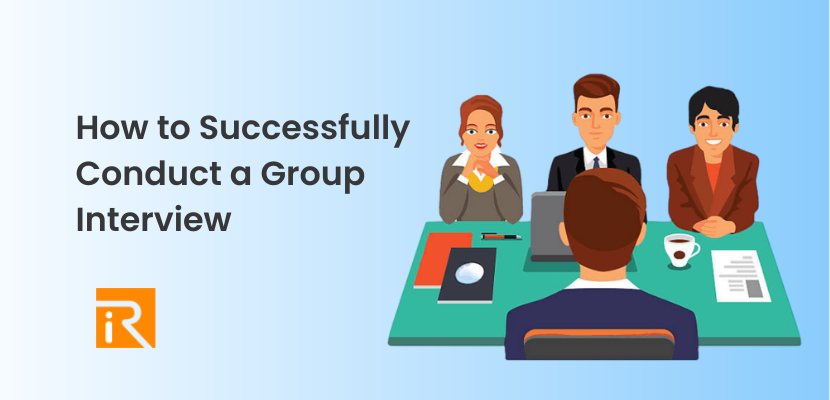If you are looking to hire multiple candidates for the same job position, a group interview may be the best way to streamline your hiring process. This method is advantageous when employers need to fill open job positions quickly and efficiently. However, group interviews require a lot of planning and preparation to execute successfully. In this guide, we will provide you with everything you need to know to conduct a group interview that will test multiple candidates at once and ensure you make an informed and accurate hiring decision.
Why Conducting a Group Interview is Worth It
There are many benefits to conducting a group interview for your business. Firstly, group interviews can save time and resources by allowing you to fill open job positions quickly and efficiently, particularly when under a tight deadline. By testing multiple candidates at once, you can easily compare applicants and identify the best candidates for the job.
Group interviews also provide an opportunity to evaluate candidates’ team-building and communication skills. This can help you identify candidates with the strongest skill sets in these areas, which are essential for success in many jobs. Additionally, conducting group interviews can help prevent biases from creeping in as they involve multiple interviewers observing the same candidate’s behavior and responses.
Another benefit of group interviews is that they provide an opportunity to see how candidates perform under pressure. This can be useful in assessing their ability to handle the challenges of the job and work effectively in a team setting.
Ultimately, the benefits of conducting a group interview can lead to better hiring decisions, increased employee retention, and improved business outcomes. By identifying the best candidates for the job, you can build a strong team that is capable of achieving your company’s goals and objectives.
The Investment Needed to Conduct a Group Interview
Conducting a group interview requires more time and effort to plan and organize than a regular interview. You will need to invest time initially to plan the interview and meet with other interviewers to discuss the process. This meeting will help you decide on the questions to ask, who will ask them, and how to evaluate each candidate’s answer.
The planning process may take a week or two before the actual interview date. During this time, you’ll need to notify the candidates of the interview details, including the date, time, and who will be conducting the interview. It’s important to give them enough time to prepare for the interview by researching the company and the relevant positions.
On the day of the interview, you’ll need to allocate enough time for the group interview and any related activities that demonstrate the candidates’ skills and communication abilities. Each interviewer should have a specific role to play and be responsible for evaluating specific skills or traits.
Using dedicated HR software can be helpful in organizing and managing the group interview process. These tools can assist in scheduling interviews, sending notifications, and evaluating candidates’ responses.
Although conducting a group interview requires more investment in time and resources, it can save you time in the long run by helping you identify the best candidates more efficiently. Additionally, group interviews can be an effective way to evaluate multiple candidates in a single session, allowing you to make more informed hiring decisions.
5 Steps To Conduct a Group Interview
To successfully conduct a group interview, follow these five steps.
Step 1 – Notify the Interview Candidates
When scheduling a group interview, it’s important to give candidates enough notice. This is typically done a week or so before the interview date. Notify them in advance so that they can prepare accordingly. Make sure to provide information about who will be conducting the interview and which positions are being considered. This will allow candidates to research and formulate their answers ahead of time, leading to more thoughtful and well-prepared responses during the interview.
Step 2 – Prepare the Questions
To effectively assess each candidate’s skills and experience relevant to the job position during a group interview, consider preparing a list of questions that cover a range of topics. Here are some sample questions to consider:
- What experience do you have in this industry or field?
- Can you provide examples of how you have applied your skills in previous roles?
- How do you handle difficult or challenging situations at work?
- How do you prioritize tasks and manage your time effectively?
- How do you approach collaboration with others, and what role do you typically take in group settings?
In addition to traditional interview questions, consider incorporating activities that require candidates to work together and demonstrate their communication skills. For example, you might ask candidates to solve a problem or complete a task as a team, or have them engage in a group discussion or debate. This will give you a better sense of how each candidate interacts with others and how they contribute to group dynamics.
Step 3 – Plan the Day
To ensure a smooth and effective group interview, it’s important to plan the day and assign responsibilities to each interviewer. Here are some steps to consider:
- Decide on the format and structure of the interview. Will it include traditional interview questions, group activities, or a combination of both?
- Determine who will be responsible for each aspect of the interview, such as introductions, icebreakers, questions, and group activities. Consider assigning each interviewer to evaluate specific skills or traits, such as teamwork or communication skills.
- Prepare any necessary materials or equipment, such as handouts or presentation slides.
- Communicate the plan to all interviewers and ensure that everyone is clear on their roles and responsibilities.
- On the day of the interview, make sure to arrive early and set up any necessary equipment or materials.
- Begin the interview by introducing the interviewers and explaining the format of the interview.
- Throughout the interview, make sure to take notes and evaluate each candidate based on their skills and experience.
By planning ahead and assigning responsibilities, you can ensure that the group interview runs smoothly and that each candidate is evaluated effectively.
Step 4 – Conduct the Interview
During the group interview, it’s important to conduct the interview in a fair and consistent manner. Here are some steps to consider:
- Ensure that each candidate has an equal opportunity to answer each question. Encourage candidates to take turns and avoid letting any one person dominate the conversation.
- Consider using an evaluation rubric to assess each candidate’s performance. This will help ensure that each candidate is evaluated consistently based on the same criteria.
- Take notes on each candidate’s responses. This will help you remember key details and make informed decisions later on.
- Be attentive to each candidate’s body language and nonverbal cues. This can give you valuable insights into their personality and communication style.
- Throughout the interview, make sure to stay focused and engaged. Encourage candidates to elaborate on their responses and ask follow-up questions when appropriate.
By conducting the interview in a fair and consistent manner, you can ensure that each candidate has an equal opportunity to showcase their skills and experience. Using an evaluation rubric and taking notes will help you make informed decisions when it comes time to select the best candidate for the job.
Step 5 – Follow-Up
After the group interview, it’s important to follow up with each candidate to provide feedback and keep communication open. Here are some steps to consider:
- Send a thank-you email or message to each candidate within a few days of the interview. Thank them for their time and reiterate your interest in their candidacy.
- Provide feedback on their performance during the interview. Be specific and highlight both their strengths and areas for improvement. This will help them understand how they can improve in future interviews.
- Keep communication open and answer any questions they may have about the interview process or the position. This will demonstrate your company’s commitment to transparency and openness.
- Even if a candidate is not selected for the position, continue to engage with them and consider them for future job opportunities. Building a strong candidate pool can help you find the best talent for future positions.
By following up with each candidate after the interview, you can provide valuable feedback and keep communication open. This will help build a positive relationship with candidates and increase the likelihood of them considering future job opportunities with your company.
Conclusion
In conclusion, group interviews can be an effective way to evaluate multiple candidates for a job position. To conduct a successful group interview, it’s important to plan ahead, prepare a list of relevant questions, and assign responsibilities to each interviewer. During the interview, make sure to conduct it in a fair and consistent manner and take notes on each candidate’s responses. After the interview, follow up with each candidate to provide feedback and keep communication open, even if they are not selected for the position. By following these steps, you can ensure that the group interview process is efficient, effective, and fair for all candidates.

















